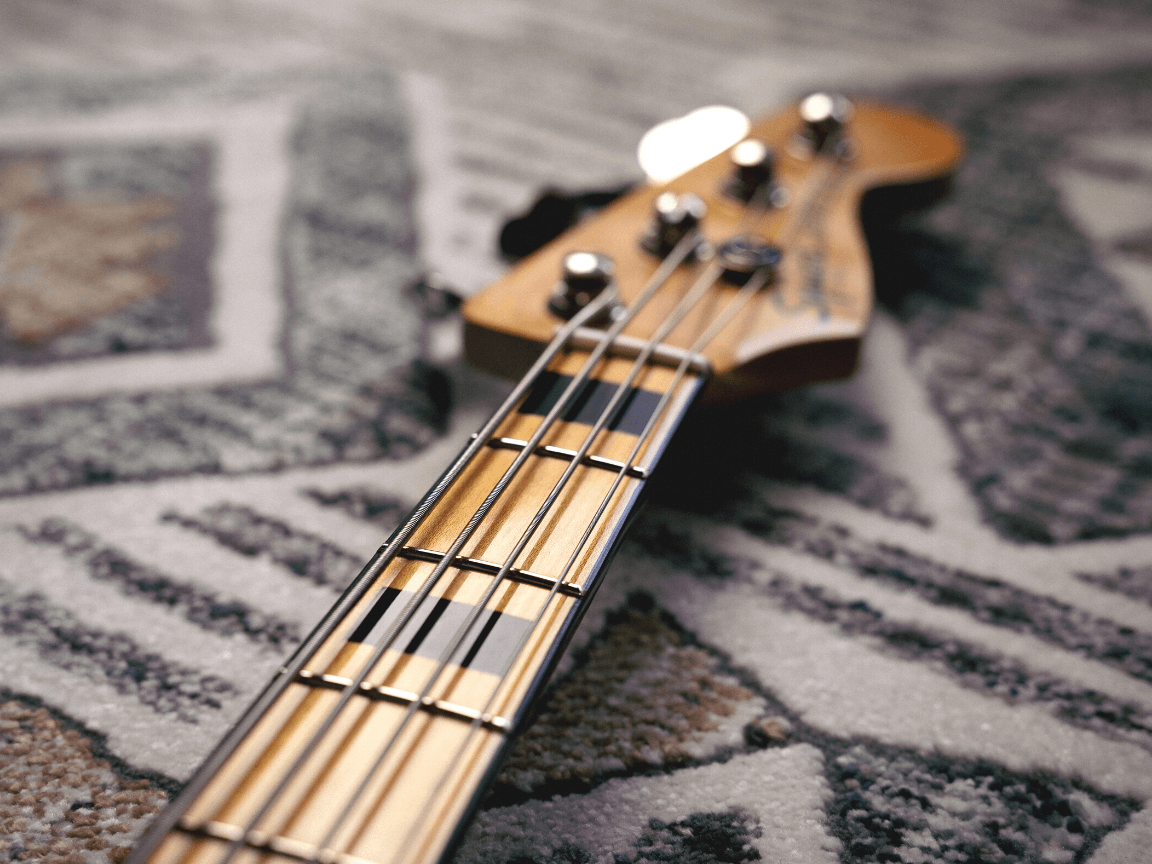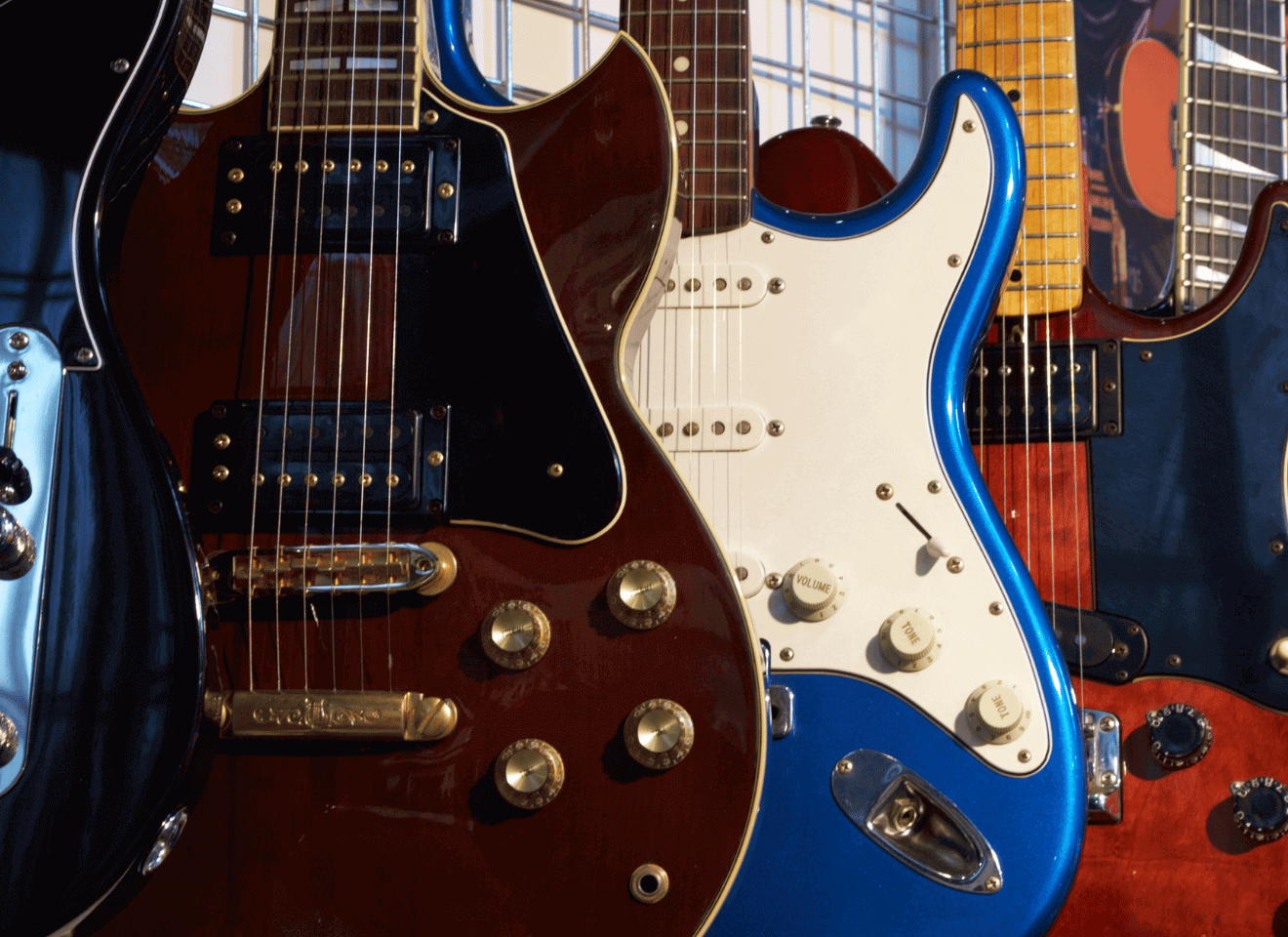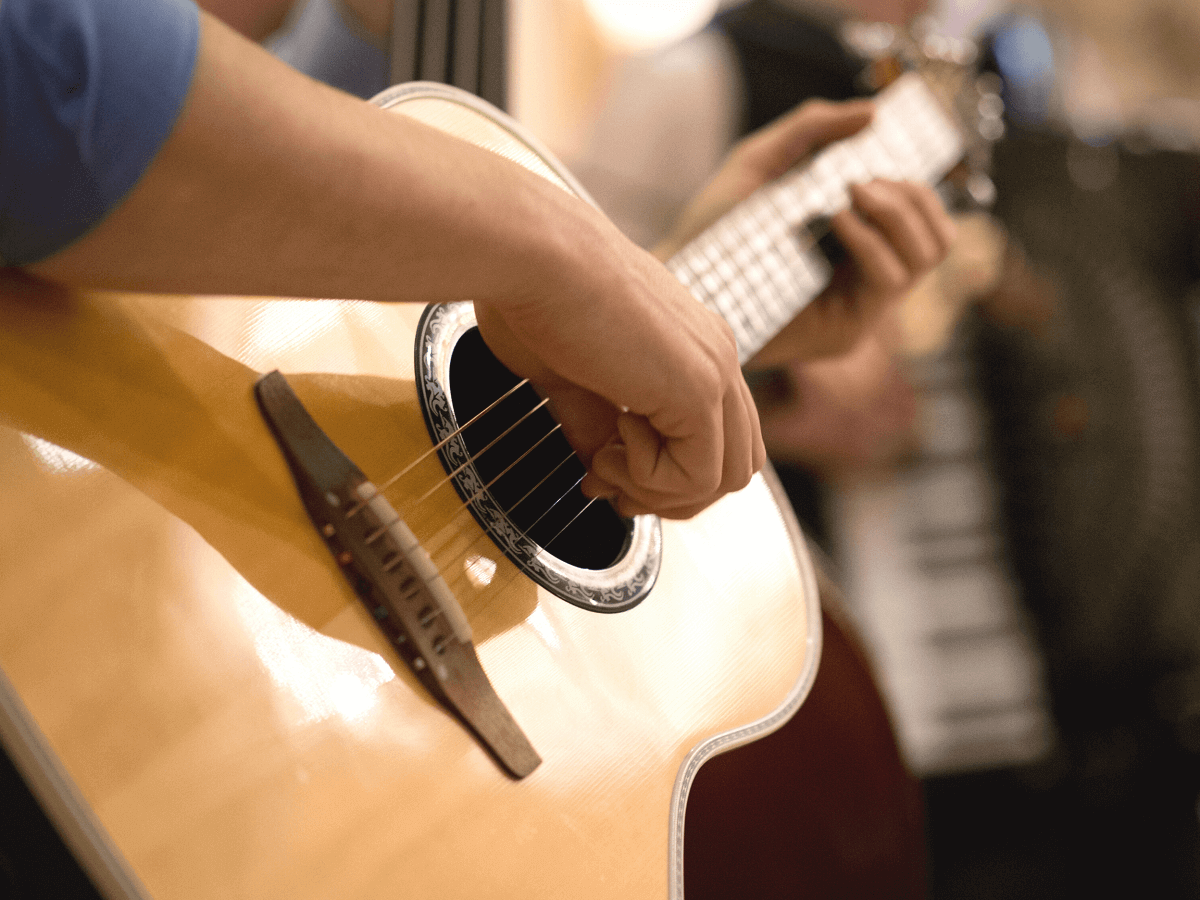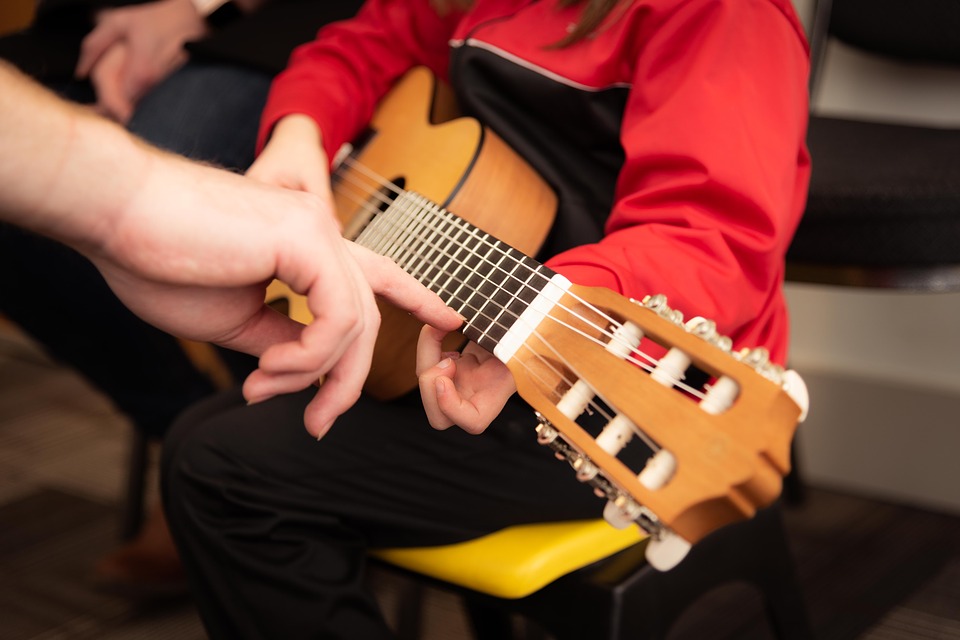If you’re a guitar player who’s been playing for a while, you may have wondered if you can also play bass.
The answer is yes! While the bass guitar is a distinct instrument from the guitar, the two instruments have a lot of similarities.
Bass guitars use the same notes, scales, and chords as regular guitars, but they are typically tuned to a lower range.
Bassists often play similar melodies and riffs to guitarists, but they emphasize playing in the low end of the instrument’s range.
In this article, we’ll explore the basics of playing bass guitar and discuss more about the differences between playing bass and playing guitar.
We’ll also provide some tips and tricks to help you get started playing bass and make the most of your experience.
So if you’re ready to make the jump from guitar to bass, read on!
Table of Contents
- Can guitar players play bass?
- Similarities between Guitar and Bass
- Differences between Guitar and Bass
- Playing Bass with a Guitar
- Playing Guitar with a Bass
- Are bass players failed guitarists?
- Why is bass better than guitar?
- Do bassists play chords?
- Why do bassists tape their fingers?
- What makes a bassist great?
- Final thoughts
Can guitar players play bass?
Yes, guitar players can play bass. Bass guitar is similar to a regular guitar in many ways, so guitarists can often pick up the basics of playing bass fairly quickly. However, playing bass does require some different techniques and knowledge, so guitarists may need to practice and learn more about bass playing to become proficient. Additionally, the sound of the bass guitar is different than that of a regular guitar, so guitarists may need to adjust their playing style to accommodate the different sounds.
On the other hand, regular guitarists may have an advantage when transitioning to bass since they already know the notes and chords on the guitar.
This can help them quickly apply their existing knowledge of music theory to playing bass, making it easier for them to pick up new techniques.
Even though this doesn’t mean guitarists will automatically be great bass players, it does mean that they can transition more easily.
Similarities between Guitar and Bass
Even though guitar and bass both fall into the category of string instruments, they do share some similarities.
Firstly, the most simple ones are the fact that they both have strings and are typically amplified through a pickup system.
In addition to this, guitar and bass use similar scales, progressions, and arpeggios; allowing them to be used together in the same key.
Let’s take a closer look at how guitar and bass share similar techniques:
1. Tuning
Although a regular guitar will have 6 strings, and the bass typically has 4-5 strings, both instruments use the same basic tuning system of EADGBE, low to high for a guitar, and EADG for a bass.
What this means is that the notes in the same position on the fretboard are the same between the guitar and bass.
So this means that once you learn the notes on one instrument, it’s relatively easy to transfer this knowledge to the other.
2. Basic Playing Techniques
Despite the difference in tone and texture between the two instruments, they both use very similar playing techniques.
Hammer-ons, pull-offs, bends, vibrato, and tapping are all techniques that are used by both guitarists and bassists.
On top of this, both instruments use similar picking techniques such as alternate and economy picking.
These techniques can be applied to both guitar and bass, giving each musician the ability to create unique sounds using their instrument of choice.
3. Music Theory
Both guitar and bass use very similar music theory concepts when it comes to playing in a key or learning scales and chords.
Since both instruments are tuned to the same notes, they share the same scale and chord structures.
This means that once you understand music theory on one instrument, it’s relatively easy to transfer this knowledge to the other.
Differences between Guitar and Bass
Despite the similarities between guitar and bass, there are some clear differences that make them unique instruments.
Let’s take a look at some of the key distinctions between guitar and bass:
1. Pitch Range
The most obvious difference between guitar and bass is their range in pitch.
A regular 6-string guitar has a much wider tonal range than the 4 or 5 strings found on bass, allowing for more intricate chord voicings and melodies within a single song.
The bass on the other hand typically has a much lower range than the guitar and is used to provide the song with its foundation or bottom end.
2. Number of strings
As mentioned previously, the guitar usually has 6 strings while the bass typically has 4-5 strings.
The number of strings on each instrument plays an important role in creating their unique sounds.
For example, the extra 2 strings found on a guitar allow for more chord voicings and melodies within a single song.
This makes it possible to create better arrangements and compositions and to achieve more complex sounds.
2. Size and weight
The size and weight of both instruments also set them apart.
A bass tends to be larger and heavier than a guitar, making it difficult to carry around and transport.
Even though this difference won’t be so big that it’ll prevent you from playing either instrument, it’s still worth noting.
3. Role in a band
The role of each instrument in a band is also an important distinction that we should talk about.
As obvious as it may sound, guitars are typically used for lead and rhythm guitar parts while the bass is the foundation or ‘bottom end’ of any song.
Guitars also have the ability to be heard in a mix more easily than a bass guitar and can take on more complex roles within a band.
3. Tone
The tone of each instrument is also quite different and is possibly the most distinguishing factor between the two.
Guitar tones tend to be brighter and more dynamic while bass tones are usually much darker and heavier.
This is due to the difference in the number of strings and tonal range as well as the size of each instrument and even the gauge of strings.
Playing Bass with a Guitar
Is it possible to play bass with a guitar? The answer is yes, but with a catch!
Guitarists can learn the basics of playing bass by utilizing their existing knowledge of chords and scales.
You can even get more creative and use effects pedals to actually get a similar sound to a real bass.
The catch is that it will never sound like or replace the real thing.
So while it is possible to play bass with a guitar, it’s not the same as playing an actual bass guitar and most likely won’t sound as good.
1. Necessary Adjustments
Playing bass with a guitar can be a great way to add depth and complexity to your music, however, there are some necessary adjustments that need to be made to make sure you’re playing the bass correctly.
First, you’ll need to adjust the tuning of your guitar or buy an octave pedal that can change the tuning.
This will help you achieve the lower notes that are necessary for bass parts and make sure you’re playing in the right key.
You’ll also need to adjust your picking technique or just the way you play in general.
The picking and strumming style for a guitar is different than that of a bass, so you need to make sure that you’re playing with the correct technique.
Bass players tend to use fewer notes, but with more emphasis and focus on each note, especially root notes.
2. Amplification and Effects
Another important factor to consider when playing bass with a guitar is the amplification and effects that you use.
It can be the deciding factor that makes or breaks your tone, so it’s important to experiment with different amps and effects to find the sound that you like.
Also, as I mentioned, using effects pedals can be a great way to get the sound of bass without having to buy an actual bass guitar.
Distortion, chorus, and flanger effects are all great options to give your tone more depth and character.
Aside from that, using a compressor can also be helpful in giving your notes more clarity and sustain, which is essential for bass playing.
3. Advantages and Disadvantages
Playing bass with a guitar can be a great way to add more depth and complexity to your music, but there are also some drawbacks to consider.
The main advantage is that you’re able to use your existing knowledge of chords and scales, as well as effects pedals, to achieve the sound of a bass without having to buy an actual bass guitar.
As for the downsides, I found that one of them is that it won’t ever sound the same as playing a real bass guitar and you can’t always make the necessary adjustments to get the sound that you want.
So, while it is possible to play bass with a guitar, it may not be the best option for everyone.
Also, if you’re looking to play bass in a band, I would highly recommend that you invest in an actual bass guitar and learn the basics of playing it.
Playing Guitar with a Bass
So we just covered how you can play bass with a guitar, but is the reverse possible?
The answer is a big no, with a bit of a maybe!
While bassists can learn to play guitar and use their existing knowledge of scales, chords, and techniques, it’s impossible for a guitarist to play the same songs on bass and sound the same.
Playing chords on a bass is harder than playing them on a guitar, as the range of notes is much more limited and you need to be able to use different techniques in order to make it sound right.
Although playing the root note of the chord with its octave is possible, or just sticking to power chords, it’s much harder to get the same sound of a guitar playing the same song on bass.
The only scenario that I would see this work is if you’re only looking to play rock and metal songs with just the root note and octave of the chord, and as much distortion as possible.
In that case, it might be possible to get a passable sound but still won’t compare to the real thing.
1. Necessary Adjustments
Playing guitar with bass can be a great way to add depth and complexity to your sound, however, it does require some adjustments to make sure that you are playing something worth listening to.
One of the biggest adjustments would be to make sure that you are playing with the right technique.
Bass players tend to use fewer notes, but with more emphasis and focus on each note, especially root notes.
So if you’re trying to play as a guitar on bass, you need to make sure that you’re emphasizing more notes together and not just single notes.
You also need to be aware of the range of notes you can use, as bass guitars have a limited range in comparison to the regular guitar.
Finally, it’s important to experiment with different effects and amps so that you can find the right sound for your style, which means utilizing octave pedals, compression, and distortion effects to give your bass sound more character.
2. Advantages and Disadvantages
One of the main advantages of playing guitar with a bass is that you can create a fuller sound.
The bass can provide a low-end foundation for the guitar, which can help to make the sound more dynamic.
Aside from that, I don’t really see any big advantages to playing guitar with a bass.
The main disadvantage is that it’s extremely difficult to replicate the same sound as a real bass guitar, so you may end up sounding quite different from how you want.
Also, it takes time and effort to learn the proper technique for playing guitar on bass and this can be quite overwhelming for beginners.
As a rule of thumb, no instrument will ever be able to replace another and it’s always better to learn the original instrument if you want to get the sound you want.
In reality, with a MIDI guitar, you can play the trumpet, but does that mean that you’re a trumpeter?
No, it just means that you know how to use the MIDI instrument for its intended purpose.
The same concept applies here, so if you really want to play the bass guitar, invest in one and learn the basics before jumping into learning new instruments.
3. Practice Makes Perfect
If you want to get better at playing guitar with bass, then practice is key, and this means making sure that you have a good understanding of the basics.
This includes learning proper technique, familiarizing yourself with chords and scales, and making sure that you can play in time.
Also, make sure to practice using different effects so that you know how to get the right sound for your style.
It’s also important that you listen to other players and learn from them, as this will help you understand how the instrument works and what it’s capable of.
Finally, don’t be afraid to experiment with different tunings and sounds so that you can get a better understanding of the possibilities available.
Are bass players failed guitarists?
No, bass players are not failed guitarists.
Bass players often have a different set of skills and musical knowledge than guitarists.
Bass players are essential to any band as they provide the low-end foundation for the music.
They need to have a good sense of rhythm, a good ear for harmony, and the ability to lock in with the drummer.
Bass players also need to have a good understanding of the music theory to know when and where to play the right notes.
Bass playing is a unique art form that requires a different set of skills than guitar playing.
While some bass players may have started out as guitarists, they have developed their own style and approach to playing the bass.
Why is bass better than guitar?
Bass is often considered to be better than guitar for a variety of reasons.
For starters, bass is typically easier to learn than guitar, as it requires fewer notes and chords to master.
Additionally, bass can provide a much fuller sound than guitar, as it has a lower frequency range and can provide a strong foundation for the rest of the instruments in a song.

Furthermore, bass can be used to create unique and interesting grooves and rhythms that can help to drive a song forward and make it more engaging.
Finally, bass can be used to provide a strong counterpoint to the lead guitar, which can add texture and complexity to a song.
All in all, bass is a great instrument to learn and can be used to create a wide range of musical styles.
Do bassists play chords?
Yes, bassists can play chords!
Bassists often play single notes, but they can also play chords, which are two or more notes played at the same time.
Chords can be played by plucking multiple strings at once with either the fingers or a pick, or by using a technique called ‘slapping and popping’ which involves using the thumb and fingers to pluck the strings in a percussive fashion.
Playing chords on the bass can add a lot of texture and depth to a song, as well as providing a harmonic foundation for the other instruments to build upon.
It’s a great way to add interest to a song and make it sound fuller.
Why do bassists tape their fingers?
Taping fingers is a common practice among bassists, and it’s done for a few different reasons.
Firstly, it helps to protect the bassist’s fingers from the strain of playing, especially when playing for long periods of time.
It also helps to build up the calluses on the fingertips, which can help the bassist to play more comfortably and with more control.
Additionally, taping the fingers can help to reduce the amount of sweat that accumulates on the fingertips, which can make it difficult to maintain a good grip on the strings.
Finally, taping the fingers can help to reduce the risk of blisters and other skin irritations that can occur from playing.
All of these factors combine to make taping the fingers a popular choice among bassists.
What makes a bassist great?
A great bassist is so much more than just a musician; they are an integral part of any ensemble.
A great bassist has the ability to lay down a solid groove and provide the foundation for the rest of the band to build upon.
They must have an understanding of the music, the ability to listen and react to the other musicians, and the technique to execute their ideas.

A great bassist should also be able to contribute musically to the band, whether it is through solos, fills, or just a creative approach to the music.
They should also be able to read music, understand the different styles of music, and be able to communicate effectively with the other members of the band.
Above all, a great bassist should have a passion for music and a desire to create something unique and special.
Final thoughts
As we have seen in this article, the answer to the question of whether guitar players can play bass is a resounding yes.
With the right approach, dedication, and practice, anyone with a guitar background can learn the basics of bass playing.
The key is to take it slow, focus on technique, and learn the fundamentals of bass playing.
With the right dedication and practice, guitar players can become proficient bass players.
Additionally, the bass can be a great way to expand one’s musical horizons and explore new genres.
With the right attitude and the right tools, guitar players can unlock the possibilities of bass playing and create new and exciting music.

More than 10 years of experience playing and writing about guitars! When not writing, I can be found strumming away some Johnny Cash tunes. Favorite all time guitar is the Gibson Les Paul. #TeamGibson




